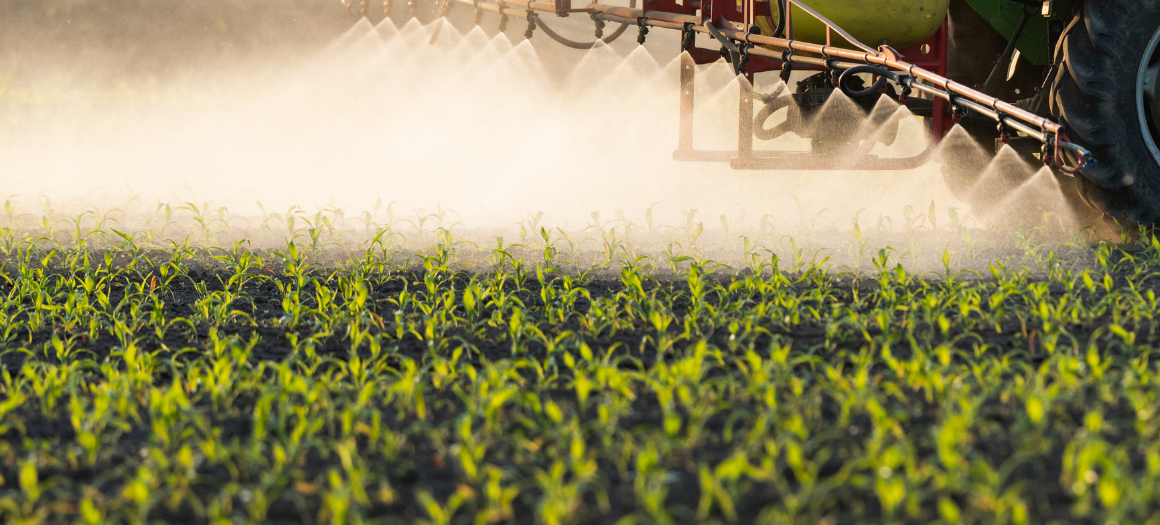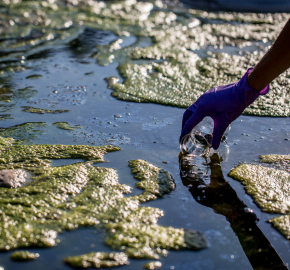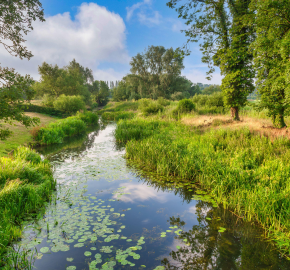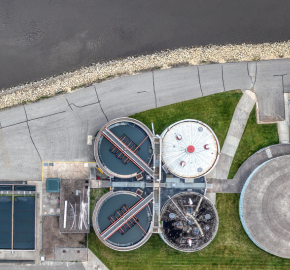Legal Update – June 2025

Here is what our legal team have been working on in May and June and what’s coming soon.
Pesticides used in farming – how much, where and when?
Last November WildFish lawyers won a major victory in our battle for transparency over pesticide pollution of UK rivers (see more here).
Things are moving on as the Health and Safety Executive (HSE) has now appealed against another Decision by the Information Commissioner that they should disclose various farmers’ pesticide use records.
WildFish lawyers are leading the charge to ensure that academics, conservation groups and the general public have the right to know what pesticides are used, on what land, and in what quantities, particularly where those pesticides end up being washed into streams lakes and rivers where they affect aquatic ecosystems.
Although the appeal is technically against the Information Commissioner, WildFish has joined the case as a Second Respondent, in support of the Information Commissioner, and we have instructed Counsel.
We have submitted our detailed Response to the HSE’s Appeal and we are told to expect the hearing in the autumn.
This is a vital case, so watch this space.
Salmon farming and ‘greenwashing’
WildFish lawyers have again referred the Scottish salmon farming industry to DEFRA in relation to its the Protected Geographical Indication (PGI) name.
To have a PGI, you have to be a ‘special’ product, such as Melton Mowbray Pork Pies or Stilton Cheese.
WildFish has always argued that Scottish farmed salmon having a PGI is simply wrong. It’s a factory-farmed product with any number of environmental issues and problems.
That’s why WildFish set up Off The Table.
We have also been blogging about the latest academic work that shows the harm caused to wild fish (read more here).
Now, in a legal case being heard between the supermarkets and the Scottish salmon farming industry, about potential cartel activity, the Competition Appeals Tribunal has suggested that, in effect, there is no difference between Scottish farmed salmon and Norwegian farmed salmon.
There is nothing special about Scottish farmed salmon.
If that is the case, there can be no justification in law for the PGI ‘greenwash’ that the Scottish salmon farmers enjoy.
WildFish has asked DEFRA to re-consider whether or not Scottish farmed salmon does deserve recognition with a PGI name and we have started the formal legal process to require DEFRA to review the position and cancel the salmon farmers’ PGI (find out more here).
We will report on the outcome shortly.
The Soil Association and so-called ‘organic’ farmed salmon
On the wider salmon farming ‘greenwashing’ fight, WildFish continues to fight to see an end to the greenwashing of so-called ‘organic’ salmon farming.
Back in 2024, we kicked off the campaign by gathering other groups to support an open letter to the Soil Association (read more here).
WildFish lawyers then won a major victory in their battle to see secret inspection reports published (find out more).
Shamefully, Soil Association Certification Limited has now appealed against that decision of the Information Commissioner, meaning it would not be obliged to provide copies of inspection reports of so-called ‘organic’ salmon farms (which WildFish considers create the same issues for wild fish conservation as ‘conventional’ fish farms).
The appeal will be heard in the autumn and we have been formally joined as a party to the proceedings, in support if the Information Commissioner.
However, it is a very sad day when a fellow eNGO, the Soil Association, feels it necessary to go to Tribunal to fight transparency in its certification activities, in some misguided effort to protect its commercial clients – in this case, the salmon farmers – from proper public scrutiny.
It is difficult to think of a food production system further removed from the founding principles of the Soil Association.
WildFish believes that nothing short of the Soil Association ending completely its certification of so-called organic salmon farming will be sufficient to repair the damage the Soil Association is currently doing to its own reputation.
WildFish submits detailed written evidence to the Public Accounts Committee looking at the regulation of the water industry
Following the Office for Environmental Protection’s Decision Notices (read more here) on the WildFish complaint, which laid out that Ofwat, the Environment Agency and Defra have all failed to implement the law on sewage treatment, allowing water companies to pollute English rivers unlawfully for years, WildFish has submitted detailed written evidence to the Public Accounts Committee of the House of Commons in its current inquiry into the regulation of the water industry. Read our submission here.
Cat and dog flea treatment chemicals in rivers – WildFish refers Veterinary Medicines Directorate to the Information Commissioner
WildFish has been in detailed correspondence with the Veterinary Medicines Directorate (VMD) about the failure of that body properly to control the use of fipronil and imidacloprid in cat and dog tick and flea treatments. Readers may well know that those two active substances, although banned for use in agriculture, are still showing up in high concentrations, at ecotoxicologically active concentrations, in many rivers in the UK. WildFish considers the VMD has been incredibly slow to deal with the problem and asked a number of very detailed questions about the regulatory procedures and processes that the VMD is supposed to oversee under the Veterinary Medicines Regulations 2013.
In its final response on the request, the VMD has suggested, absurdly, that to answer our queries and provide the information we seek would take 4700 hours – roughly equivalent to a full-time member of VMD staff, doing nothing else, spending just short of three years on our request.
Understandably, we have now referred the matter to the Information Commissioner.
More widely, WildFish lawyers continue to examine how vet meds are authorised, regulated and monitored in the UK and will be bringing forward recommendations for change in due course.
Welsh law, salmon and sea trout
WildFish lawyers are delighted to report that we have just received charitable funding from the Waterloo Foundation to undertake a thorough and detailed examination of environmental law in Wales that either fails to protect or in some way harms Welsh salmon and sea trout (sewin) populations.
This is a huge vote of confidence in WildFish lawyers and we are eager to get stuck in to the work to identify gaps in Welsh law that need plugging, as well as opportunities for targeted legal interventions by WildFish.
The Cunliffe Review, again!
Sir Jon Cunliffe’s Water Commission has just released its interim report.
The document, at over a hundred pages, covers a wide range of subjects. But it gives relatively few hints at concrete recommendations. Most alarmingly, it hints at unwise changes to the Water Framework Directive regime to take into account non-environmental objectives. That plainly doesn’t make sense.
We have been busy blogging about this and other growth-agenda events such as the Corry Review. Read our blogs on the Cunliffe interim report here and the Corry report here.
Judicial review of house-building plans in Buckinghamshire
Things are moving quickly with our judicial review against Buckinghamshire Council and it has received considerable media attention in national newspapers, the BBC and other outlets (we are also very proud to have featured in Private Eye!).
We launched our legal challenge at the High Court a few months ago on the basis that Buckinghamshire Council’s planning approval for a large new housing development would see an already overwhelmed sewage works spewing even more sewage into the Great Ouse.
On 4 March 2025, Buckinghamshire Council agreed to remove protective conditions for a 170-home development in Maids Moreton, a village outside Buckingham.
WildFish’s involvement comes at the launch of its campaign to stop unwise development where there are insufficient water resources, inadequate sewage treatment capacity, or both (learn more here).
We have now been granted permission to proceed to full trial which will be held at the High Court in London in October (read more here).
Abstraction and drought
WildFish has just posted its Abstraction Report (find out more here) which discusses the framework for water use in England and identifies the problems with the system which are leaving our rivers and streams running dry.
Allied to this, WildFish lawyers have recently commented on the failure of water companies to put in place drought measures to reduce demand (read the blog) as we head towards summer water shortages.
Pollution of Windermere
WildFish has received a formal response from the Environment Agency to our Environmental Damage Regulations notification concerning the pollution of Cunsey Beck, which feeds Lake Windermere.
The Agency says that United Utilities has not caused environmental damage to Cunsey Beck from its sewers and treatment works.
Evidence suggests that the lake upstream of Cunsey (Esthwaite Water) also contains legacy phosphate which can cause algal blooms. As the tourism season on Windermere is now in full swing, WildFish will be meeting with the Agency shortly to discuss what they are going to do about the pollution of the Beck, the Lake and United Utilities’ creaking sewerage infrastructure.



